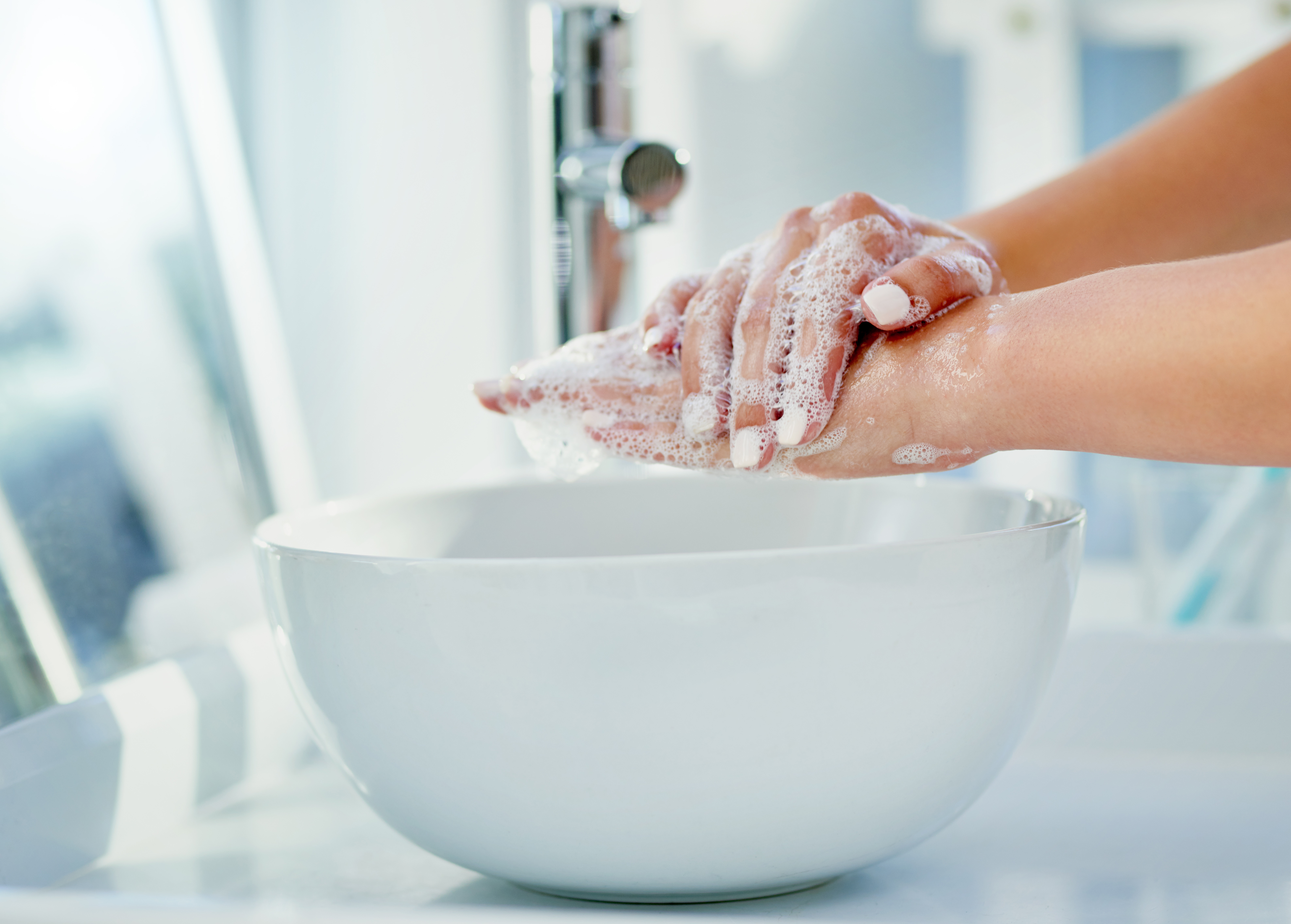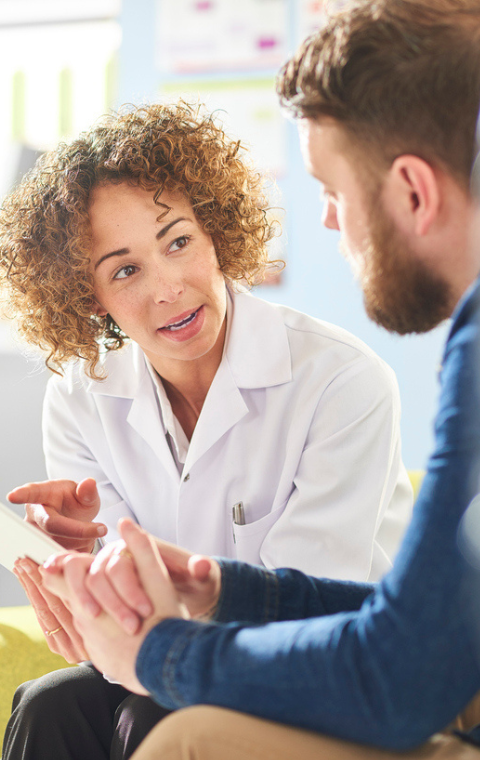People with diabetes are considered a high-risk group because having diabetes causes the body to raise glucose levels during times of illness or stress which makes it more difficult to fight infection.
What is COVID-19?
Coronavirus is an umbrella term for virus transmitted to humans from animals. The current strain (COVID-19) is a new variation that until last December was not found in humans.
Why am I at risk?
People with diabetes are considered a high-risk group because having diabetes causes the body to raise glucose levels during times of illness or stress which makes it more difficult to fight infection. For this reason, people with diabetes have an increased risk of moderate or severe illness.
People with diabetes have the same risk as people without diabetes of getting COVID-19 but if you get COVID-19, you are more at risk of serious illness.
How can I protect myself from getting COVID-19?
Coronaviruses are spread in sneeze or cough droplets. To infect you, it has to get from the infected person’s nose or mouth into your eyes, nose or mouth. This can be direct or indirect (on hands, objects, surfaces).
For people with diabetes it is therefore wise to be extra vigilant:
- Wash your hands frequently – See here for a guide on how to do this in a way that maximises your protection
- Don’t be afraid to remind those around you to wash their hands or offer them some hand sanitizer (you pour onto their hands rather than handing them the bottle)
- Avoid touching your face, eyes, nose (most of us do this without being conscious so maybe arrange with a partner or housemate to monitor one another)
- Do not attend a face-to-face gathering of people
- Practice good respiratory hygiene by covering your mouth and nose with a flexed elbow or tissue when coughing or sneezing
- Used tissues should be disposed of immediately and hands washed
- Clean down frequently used objects and surfaces using soapy water – in public areas, these should be disinfected using alcohol wipes
- Avoid other people’s personal space i.e. stay at least a two metre (bed length) away from other people
- Avoid prolonged interactions with anyone currently ill

Can I use public transport?
The HSE state that commuters are advised to travel off peak and practice social distancing such as sitting away from other people if possible, not touching surfaces unnecessarily, leaving windows open etc.
If you are experiencing symptoms, do not use public transport. Self-isolate and call your GP.
Will I be able to get my medications and supplies?
The Irish Pharmacy Union assures us that Pharmacies will stay open and there is no issue with supplies.
Currently, Pharmacies have increased numbers of people attending for advice and prescriptions. Please assist them by ringing ahead or using the CarePlus app to arrange a date and time to collect your prescribed medications.
What should I do to prepare for getting COVID-19?
People with diabetes should prepare themselves so that they are in best possible health and have the necessary knowledge and supplies for when they need to self-treat any illness.
There are simple things you can do today to prepare yourself:
- Have a sick day regime to follow in case of illness – if you don’t have one, get one from your diabetes team today
- For people with Type 1 diabetes – ensure you have ketone strips
- For people with Type 2 diabetes – know if you need to alter any medications
- Confirm with your diabetes team, what is acceptable in terms of glucose levels if home testing and when to contact them for assistance
- For anyone using a pump, ensure you have insulins (basal and bolus) to use in case of pump failure
- Make sure you have two weeks supply of medication where possible – ring the pharmacy and arrange date and time for collection the week before your script needs filling. Note: Prescriptions are only valid for six months and medications/supplies can only be dispensed monthly.
- Ensure you have an adequate supply of non-diet drinks i.e. soft drinks and simple foods that contain some sugar in case you cannot take solid foods
- Make sure you have a thermometer – the first question you will be asked if you need to seek medical attention is have you a fever (temperature above 38 °C)
- Do everything possible to maintain good glucose control:
- for people with Type 2 diabetes or prediabetes,see Diabetes Smart.
- for people with Type 1 diabetes, reinstate frequent glucose monitoring and insulin adjustment
What are the symptoms of COVID-19?
The main symptoms to look out for are:
- A cough – this can be any kind of cough, not just dry
- Shortness of breath
- Breathing difficulties
- Fever (temperature above 38 °C or 100.4 °F)
Other symptoms may include fatigue, headaches, sore throat, aches and pains.
COVID-19 and food
- We can still access all supermarkets and the government has assured us this is the plan for the foreseeable future. Staple foods are not in short supply, it’s just hard for the supermarket chains to keep food on the shelves as people are currently buying more than they need.
- If you need to self-isolate think about shopping online where food can be delivered to your door or arranged to be picked up at a store by a family member.
See below for a list of store cupboard essentials:
- Wholegrain cereals
- Porridge oats
- Pasta/couscous, rice
- Pitta pockets (store in freezer)
- Eggs
- Tinned tomatoes
- Tomato puree
- Frozen vegetables
- Baked beans
- Tinned fish - mackerel, sardines, salmon, tuna
- Pulses – lentils, chickpeas, kidney beans or butter beans
- Fruit tinned in natural juice
- Sugar-free jelly
- Stock cubes (look for reduced salt varieties)
- Low fat/fat-free salad dressing
- Mixed herbs
- Artificial sweetener
- No added sugar squash/cordial
- Olive oil or rapeseed oil
- Seeds – linseed, flaxseed, pumpkin, sesame or sunflower
- Nuts – almonds, walnuts, cashews, peanuts – choose plain, unsalted varieties

What about my mental health?
We understand diabetes can be particularly challenging at the best of times but with all this uncertainty for everyone, it is more important than ever to look after our mental health as well as our diabetes.
We know times of stress can affect blood glucose levels along with symptoms of illness such as colds or viral infections so try to not become too overwhelmed with all the information overload on Covid-19.Follow your diabetes team advice on glucose testing - there is no need to increase testing unless you feel unwell.
Check out our article about looking after your mental health at this difficult time.
Online and phone supports
Face-to-face interaction must be limited during this period. Contact Diabetes Ireland on 01 8428118 if you are concerned about your diabetes and speak to one of their healthcare professionals.
Diabetes Ireland’s office hours are 9am – 5pm Monday to Friday and their email is info@diabetes.ie.
For more extensive information see the Diabetes Ireland website.
Information from Diabetes Ireland.
![]()

